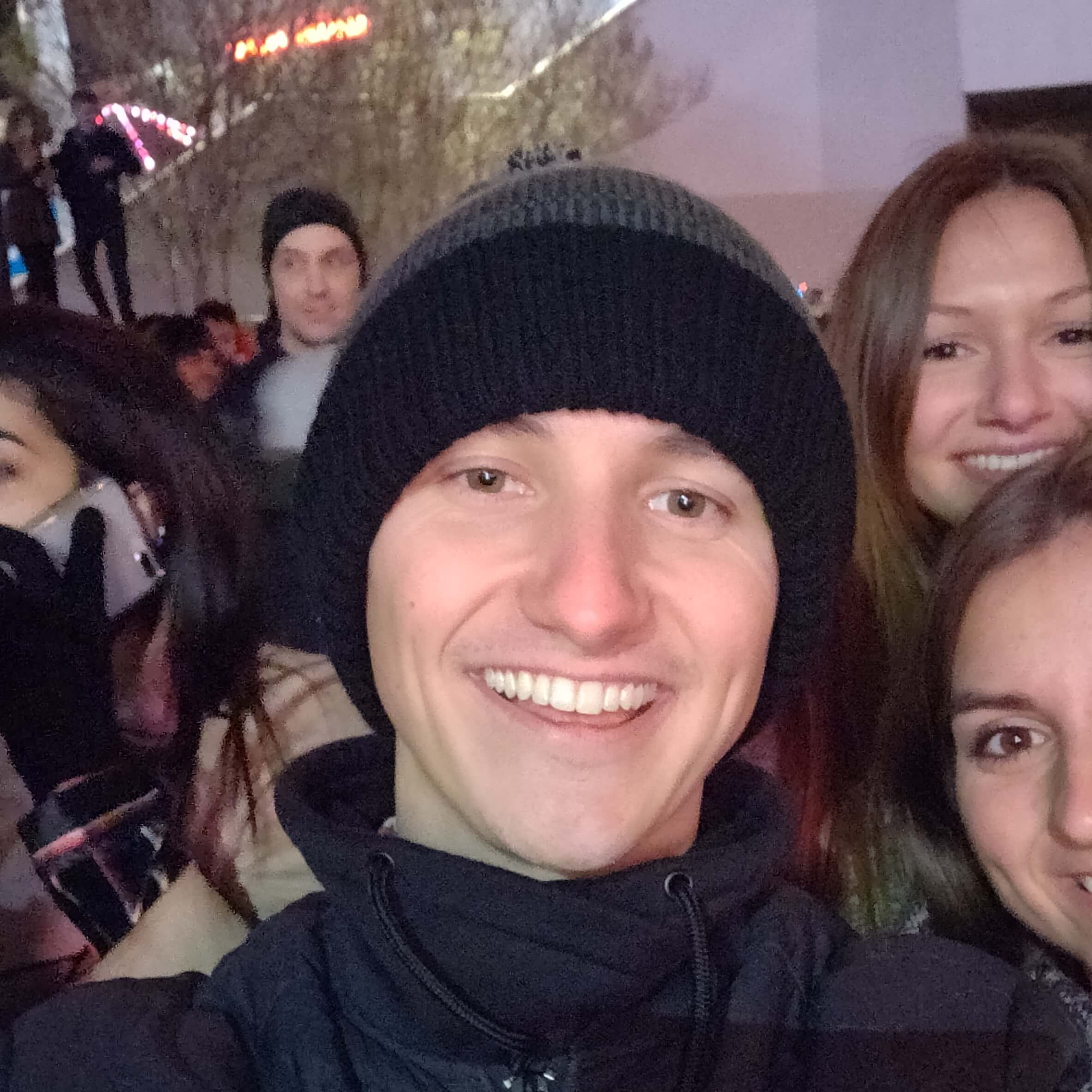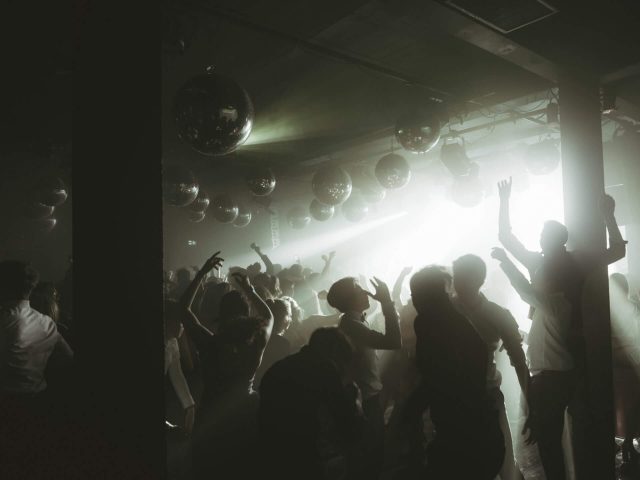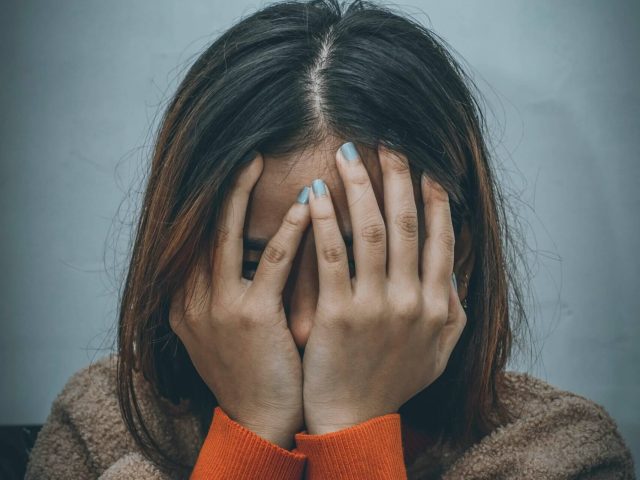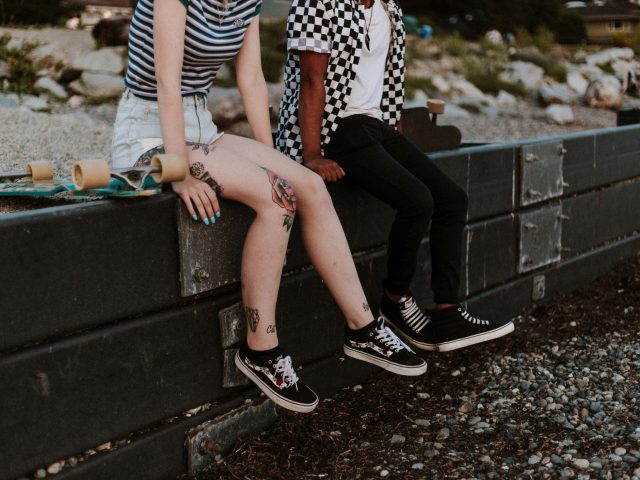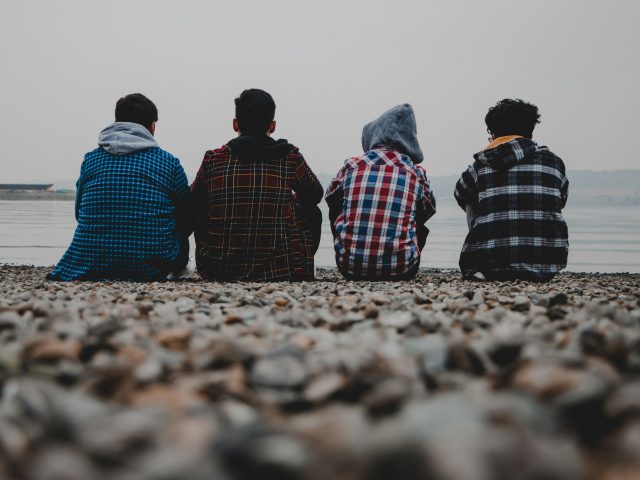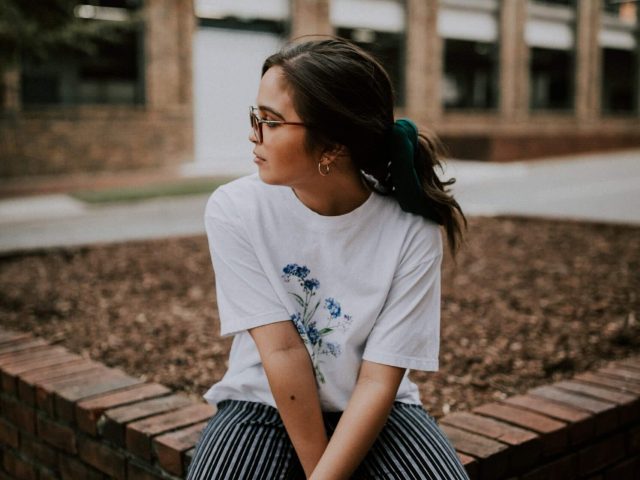1. Although 1 in 4 men will be in an abusive relationship most men don’t believe they can be abused in a relationship. Can you tell us why you think this belief is so prevalent among male-identifying people?
In my opinion, women are much more likely to speak out against relationship abuse because they are more likely to be believed and supported while many men worry about the negative reactions they might receive from sharing with others. The result is most men will downplay their experiences, or never share that they were in an abusive relationship at all. The men that do share their stories may choose their words carefully. Instead of saying he was in an abusive relationship, he might say that the person he dated was crazy or had a terrible personality. If men never share their stories, then other men will never know they can be in an abusive relationship. Relationship abuse against men is effectively an invisible problem – something most men will never know about until they are impacted directly by it.
2. Another common misconception is that if someone is not physically abusive then the relationship cannot be categorized as abuse. In fact, you experienced an abusive relationship that wasn’t physical. Can you talk us through some of the unhealthy behaviors that occurred in your relationship?
I experienced an emotionally and mentally abusive relationship. That included frequent put-downs about the way I looked, the car I drove, the phone I had, the job I worked, the friends I spent time with, the hobbies I enjoyed, and my hopes for the future. I was broken up with frequently (at least 50 times over the course of 6 years), but would sometimes get calls or texts from her telling me to come back after I had left her apartment. She once invited me to come to visit her family in the Cayman Islands, I’d bought the plane ticket, she broke up with me, and I still went to visit her family as though we’d never broken up. These sorts of experiences made breaking up a painful, yet meaningless experience.
I experienced gaslighting which is a form of psychological manipulation where an abuser twists someone’s worldview. For example, a couple of my friends have autism. She twisted this by calling every autistic person we’d ever interacted with names, including one individual I hadn’t seen in years, and alluded to me being autistic before breaking up with me for, in her words, “hanging out with all these weird people all the time.” Then insisted we get back together shortly after.
On several occasions, I was given the silent treatment for hours. There were plenty of times where I’d pick her up to go out to eat and she would be giving me the silent treatment the minute she got in the car. One year on Valentine’s Day she gave me the silent treatment the entire time we were eating dinner. When I took her home, she became upset with me and said, “would it have killed you to buy me some flowers?!”
RELATED: How to Deal with the Silent Treatment
The erasure of our relationship was common. Her social media accounts at one point had several photos of us together. Those photos were deleted as time went on, and when I asked her why she never posts pictures of us online anymore she said, “I don’t want people knowing my business.” When she graduated from her undergraduate university, she told me she didn’t want me going to the graduation ceremony because she just wanted loved ones there. About a year and a half later she organized a party with her graduate school classmates. I went and one of her classmates whom she’d known since starting her program mentioned that she’d never known my ex was in a relationship. This was about 5.5 years into our relationship.
Things became worse towards the end when she was moving to Seattle for a fellowship. She went back and forth between asking me to move in with her and breaking up with me. She would call me to let me know that her mom and brother had been asking about me and missed me. One night I was speaking with her and let her know that I still loved her. Her response was that she’d been intimate with another man. For nearly 30 minutes I was given the silent treatment while my heart felt like it was about to explode. She eventually blocked my number, then began calling me late at night. I’d miss the call while sleeping and wasn’t able to call her back because she’d blocked my number. If I managed to answer the phone when she called, I’d ask why she was calling. Her response was often, “I don’t know” or just “oh, just checking in on you.” When I told her I was crushed because I had wanted to make a future with her she responded by saying, “I wanted that too.” Confusing comments like these were common.
RELATED: How to Spot the Signs of Abusive Texts & Get Help
These are just a few of the unhealthy behaviors I experienced. In many ways, mental and emotional abuse is like being attacked by a swarm of bees. One bee sting is not enough to cause intense pain. Hundreds of bee stings, though, are enough to crush anyone. When explaining what happened in my relationship, I often have to give as many examples as possible for people to understand how bad it really was. A single story of abuse is like a single bee sting. Many people still say, “it couldn’t be that bad.” Dozens of stories need to be told before people, especially men, realize they were in fact in an abusive relationship.
Despite these awful stories, there were also incredible moments of happiness and normalcy. Those moments seemed extra special when following an abusive incident. A big reason people stay in these sorts of relationships is because they are not being abused 100% of the time. Abused people think if they wait long enough the abusive person will change and become the perfect person they met in the beginning. The reality is the opposite. Abusive people only get worse as time goes on.
3. Before you realized you were in an abusive relationship, where did you turn for answers?
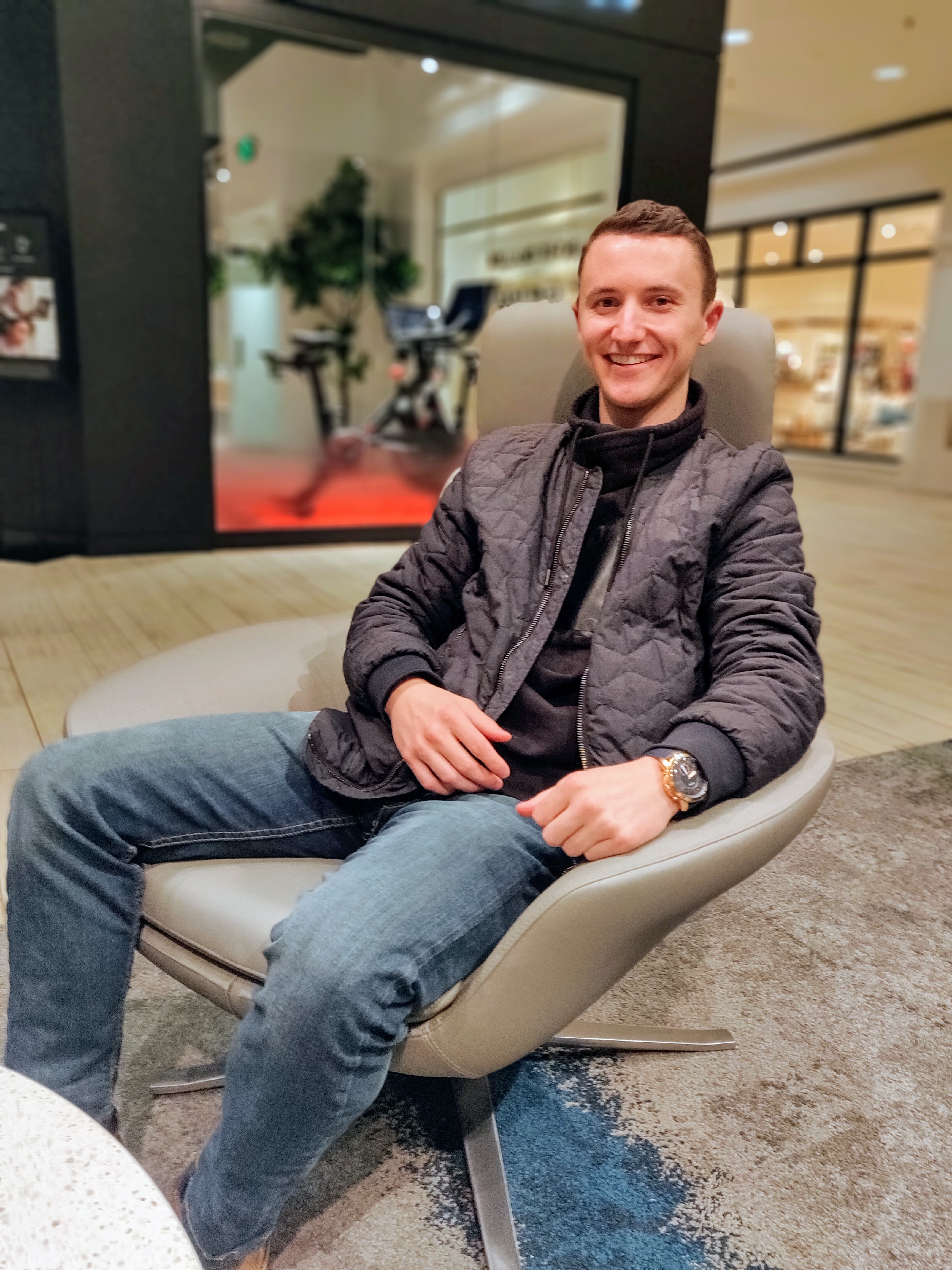
It took me months to come to terms with what had happened to me. One reason it took me so long was my own prior ideas of what an abusive relationship could look like. I felt silly googling “signs of an abusive relationship,” but when I did I connected with a lot of what I was seeing. I watched YouTube videos, read blog posts, and spoke to people in Reddit groups. There’s so much information online to help people understand what relationship abuse really looks like, but unfortunately, most people won’t look it up until they’ve been in an abusive relationship themselves.
RELATED: How to Know When It’s Time to Breakup
4. Over the course of your relationship, you learned a number of terms to describe the manipulation you experienced. Can you tell us specifically about love bombing (a form of intensity) and future faking (emotional manipulation)? What do they mean and how did they manifest in your relationship?
Love bombing is a period of intense affection outside what we would typically consider reasonable. Love bombing usually occurs at the beginning of a relationship and after an abusive incident. One example in my relationship was the constant request for favors. It could be something as simple as helping to rearrange furniture. I’d go over to her apartment to help her and she would become so grateful and affectionate. It was the same feeling I’d had in the beginning. She might ask if I want to watch TV and begin hugging me on the couch. We might get back together after that and she would say, “I’m sorry, I think I made a mistake” before getting back together. It felt like things would be different because the affection was so intense and her desire to be with me seemed so strong. This was only temporary. Abuse is a cycle and a honeymoon period where things are great is common.
Future faking is when an abusive individual uses promises to convince someone to do what they want. In my case, she would talk about marriage or kids during periods where we were not technically boyfriend and girlfriend to get me to believe what was going on was only temporary. She once got annoyed with me for not taking the garbage out and said, “what are you going to do when we live together.” These sorts of conversations might take place in normal relationships too, but in abusive relationships, these topics are used to create a false idea in the abused individual’s head that things are going to get better and the future is going to be fantastic. An alternative example of future faking in the workplace might be a boss promising an employee a promotion in the future if they do more work. The individual will take on more work, but the promotion never comes. Lies about the future can change people’s behaviors in the present.
RELATED: What “I’m Sorry” Means When it’s Used to Manipulate You
5. Men are often taught to keep their feelings to themselves and to never show their vulnerability. How do you think this impacts the way men show up in relationships?
A lot of men believe that being strong means putting up with things that bother them and keeping their feelings to themselves. In some ways, this might have contributed to why I stayed for so long. I was willing to overlook these negative things that were happening because being strong meant “getting over it.” Being strong meant not letting someone’s words hurt me. Then when men get out of these unhealthy relationships, they may never resolve what happened to them and carry that trauma into their next relationship. They might suffer from the symptoms of something known as complex post-traumatic stress disorder. These symptoms include difficulty controlling their emotions and cutting themselves off from friends and family. It takes strength to address issues head-on and I think more men need to realize that.
6. Does it make it harder for men to know when they are in an unhealthy relationship? Or when to reach out to help?
Without a doubt, it impacts the ability of men to seek help when they need it. It’s embarrassing to say you were in an abusive relationship. It’s embarrassing to say that you have trouble focusing on work because of the way someone treated you. Men who speak out, like me, are often met with skepticism for saying that they were hurt by someone in a non-physical way. Most men would rather suffer in silence than experience the embarrassment of speaking out. It can also be difficult to teach people about a feeling they’ve never experienced. If enough men did speak out, I think we’d eventually reach a point where abused men are supported more.
RELATED: How To Help A Friend Who May Be Abusing Their Partner
7. How can male-identifying individuals know when their relationship is becoming unhealthy?
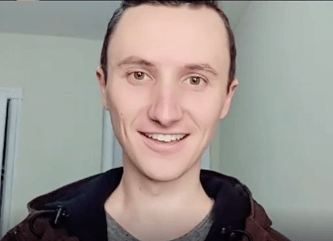
RELATED: Do you want to hear more from Jeff? Check out his IG live with One Love here.
It is extremely difficult to grasp how unhealthy a relationship is while you are in it. If you think your relationship might be unhealthy it might be time to talk to some close friends about what’s going on. Others can look at your relationship without anything to lose and can be more honest with you than you’d be with yourself. Talking to friends and family about an unhealthy relationship may be the key to understanding how bad things really are. My mother was constantly telling me that the relationship I was in was not healthy. Instead of listening to her, I stopped telling her about the unhealthy things my ex had been doing and instead would defend her against my mother’s pleas to find someone new. In the end, I realized my mom’s comments were correct.
8. Male-identifying people are often left out of conversations about relationship abuse. Why is it important to you personally to demystify this subject for other guys and to help them talk openly about unhealthy relationships?
A lot of people lack the tools needed to help someone in an abusive relationship. Many of my friends couldn’t fully grasp what had happened. I’ve spoken to other men who were in abusive relationships who heard harmful comments like, “maybe it was something you did?” Some people may say, “you should have put your foot down more,” implying that the abused individual just let the abuse happen. The reality is that abused individuals do push back, but the cycle of abuse tricks people into believing that things might get better. If we include men in more conversations about relationship abuse I think it will enable us to better help those who have been in abusive relationships, regardless of what gender they identify as. Talking about issues is one of the best ways to solve problems. If more men spoke about their experiences they would be able to combat ignorant ideas about relationship abuse by directly speaking to people who may not understand what it is like.
RELATED: 11 Common Patterns of Verbal Abuse
9. February is Teen Dating Violence Awareness Month and Valentine’s day! There’s so much pressure to be in a relationship around this time, especially online. Have you felt the pressure to play up a picture-perfect version of your relationship in the past?
I’ve never been a big fan of social media so I wouldn’t say I’ve personally felt that pressure online because I wasn’t frequently looking at posts. I did feel that pressure in-person. If I were visiting friends, they would say things like, “everything good with that girl you’re dating?” I would always respond by saying that things were perfect. I never wanted to say anything negative about my relationship, and I think for a lot of people that also includes what they post online. Some people were shocked when I told them about some of the things that had happened after 6 years of acting like everything was fine. Just because things seem perfect online, or in person, doesn’t mean they are perfect behind closed doors.
10. How do you think this pressure to be the perfect couple online affects relationships IRL?
I have seen some super overly romantic Instagram pages where the guy is buying all these flowers and the couple is taking expensive vacations together. It sets an unrealistic expectation that relationships are always going to be these extravagant adventures filled with nonstop romance and activities. It’s okay to be in a relationship where you just watch Netflix on Saturday nights and eat Korean takeout food. Most of life is boring, and if you see something exciting online there’s a good chance it’s being played up for likes and views.
11. People rarely talk about teen dating violence but 1.5 million high school students experience relationship abuse every year. What advice about relationships do you wish you had heard when you were a teen?
My parents pressured me to date in high school way more than they should have. High school is the perfect time to focus on yourself, your grades, your future, and just having fun with friends. I was single throughout high school despite the pressure I experienced to be in a relationship. As I got older, I felt that there was something wrong with being single, but I’ve been working on that this past year. My new year’s resolution for 2020 was to remain single for the entire year. The pandemic made that easy for me! I know a lot of people who are actively trying to get into a relationship, but it can be refreshing to tell yourself that you’re going to remain single by choice for an extended period of time to focus on enjoying life. My advice to people in high school is that it is okay to be single by choice and focus on yourself. Don’t worry about pressure from friends and family to be in a relationship. Being single by choice and prioritizing yourself can be a lot of fun. You will no doubt find the perfect partner in the future.
RELATED: 6 Ways to Promote Healthy Relationships During Teen Dating Violence Month
12. How can we do better to educate young people about this issue?
It would be nice to see Hollywood do a better job of portraying abusive relationships as more than just a straight woman being physically hurt by a straight man. If movies and TV shows are willing to show physical violence, then they should be able to show other forms of relationship abuse as well. That includes emotional abuse, mental abuse, and relationship abuse between LGBT+ couples. I don’t know the best way to put pressure on Hollywood, but I would encourage people who work in the entertainment industry to put pressure on those around them to portray these sorts of relationships. People can learn a lot from shows intended for entertainment. The Fresh Prince of Bel-Air had a lot of episodes that tackled important social issues. Zootopia was a children’s movie but still addressed racial discrimination. We could have more films and shows that address the issue of relationship abuse.
13. What’s your advice to other guys who have been through this?
First, share your stories with as many people as possible. Don’t try to ignore the pain you’re feeling. I thought I could move to Philadelphia, make new friends, and pretend like that horrible experience never happened. The reality is that you need to talk about it. It may not be the most comfortable thing to do, but for your well-being, you need to talk about it with others.
Second, do not contact your abusive ex. Change your phone number if you have to. It’s super easy for people to naturally forget the “bad times” as time goes on. That’s our brain’s natural way of healing ourselves. We slowly forget traumatic things as time goes on. It may be tempting to contact your abusive ex after a few months, but that will never be something that benefits you.
RELATED: Don’t respond to that text from your toxic ex during the COVID-19 pandemic
14. Is there anything else you would like to share?
People in abusive relationships are not pushovers. They are not weak or easy to take advantage of. They are regular people who don’t know what an abusive relationship looks like. Then they get into an abusive relationship and before they know it, they’re suffering from the harmful side effects of gaslighting, silent treatments, frequent put-downs, and a loss of identity. They’re suffering in a way they never thought was possible because no one ever told them what an abusive relationship could look like, and no one ever got the point across to them that abusive relationships are in fact really, REALLY bad.
The most dangerous time in an abusive relationship is right after you break up. Get help from One Love’s trusted partners on the real-time resources page before leaving an emotionally abusive partner.
Browse by Category

Practicing Equality in Your Relationships
Equality is one of One Love’s 10 Signs of a Healthy Relationship. When you have equality in your relationship or…
How To Talk To A Friend In An Unhealthy Relationship
It’s not easy to know how to talk to a…
Hope After Abuse: What I Wish I Knew About Relationships In College
As a freshman in college – my first real time…
A Crash Course In Handling Rejection
The spring/summer cusp is an exciting time of year: long…
What Movie Prom Scenes Can Teach Us About Relationships
Prom season is upon us and millions of high school…





